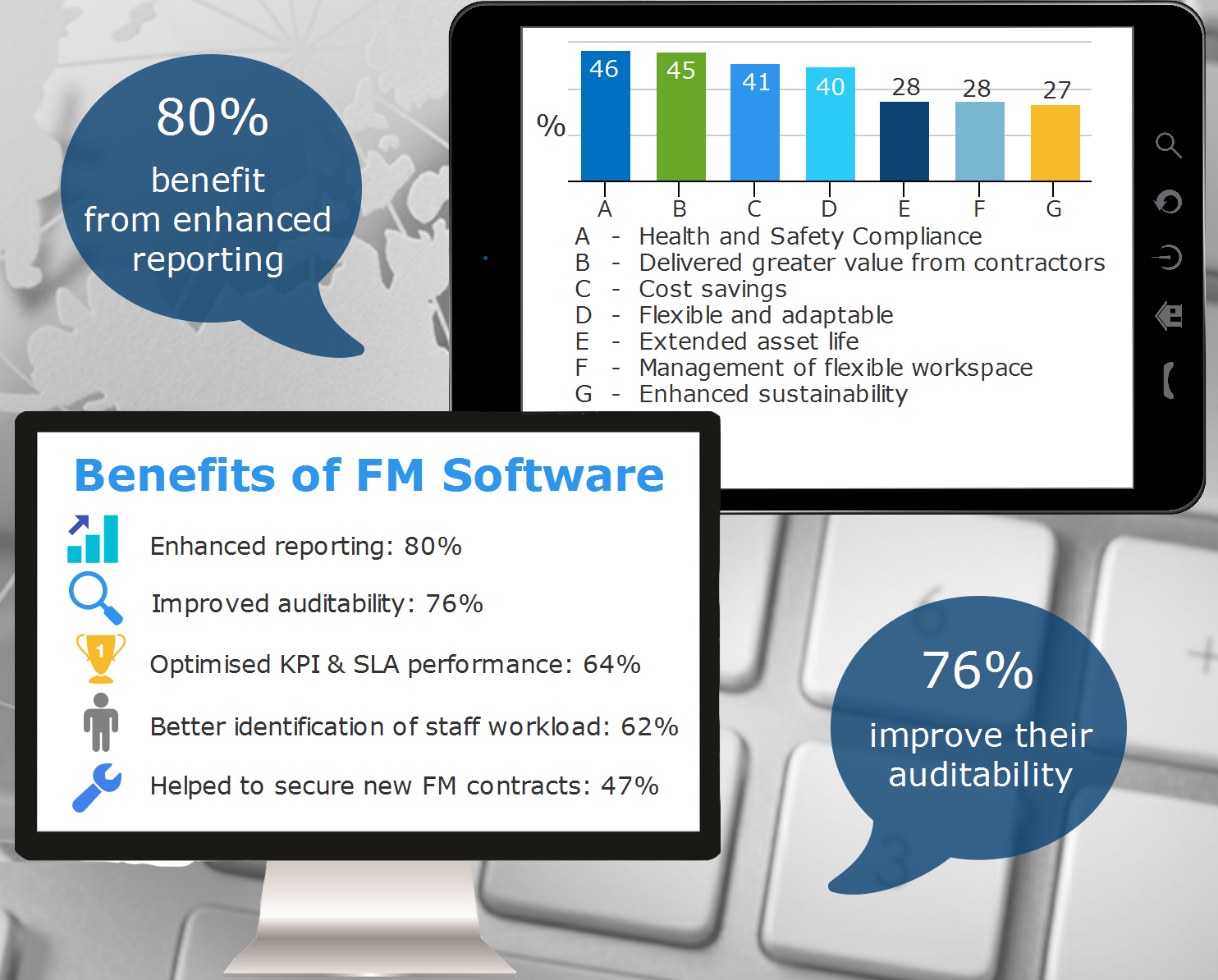Following an industry-wide survey investigating how technology is affecting facilities management, conducted by Service Works in conjunction with online media company, i-FM, we have released some highlights of the results, which will be published in full next week. If you would like to receive a copy of the report on the day of release, please pre-register by clicking here.
Technology in FM
This week saw thousands of facilities managers congregate in London at the Facilities Show, ready to learn about the latest trends and discover new products to save time and boost efficiency. Technology featured heavily at the show, with speakers discussing a range of topics including the rise of AI (artificial intelligence) in FM, the growing necessity of ubiquity enabled by mobile, and how M2M (machine-to-machine) technology is improving productivity and creating savings in money and time. Read more about some of these trends in our predictions article, Top Ten Emerging Tech Trends for 2016.
Excelling through FM software
Our survey results showed that many facilities managers have come to rely on FM software technology, using these powerful systems to effectively monitor, control and react to business issues. See our infographic below for the breakdown of responses.
1. Enhanced reporting
Control of data and reporting emerged as the top business benefit, giving the respondents better access to information and improved reporting compared to what they could achieve without software. Data is transformed into meaningful and actionable information to support strategic decision making and makes a positive impact on an organisation’s bottom line.
2. Improved auditability
Results and data lie at the heart of an FM operation, so recording jobs, costs and schedules on a spreadsheet, for example, can lead to data integrity problems. Using FM software protects information by creating an audit trail, recording the time and date of any changes as well as details of the user, preventing accidental changes and providing a more secure basis on which to make decisions.
3. Optimised KPIs and SLAs
Ensuring that service delivery levels meet contractual obligations is essential to ensure client retention and increase revenue. An IWMS will centralise the management of work requests. QFM software, for example, can colour code jobs to highlight those that are nearing their deadline in order to organise work in a more visual way. In addition, it will automate job costing to ensure budgets are met and monitor service delivery in real time to optimise service quality.
4. Better identification of staff workload
Staff workload can be intelligently managed to ensure targets are met and work is completed within the necessary timeline and to a high standard by an engineer with an appropriate skill-set. Using QFM, an intuitive graphical interface allows you to view open activities and assign resource based upon work schedules and operatives’ skills, even using GPS technology to locate the closest engineer to a task and allow them to access pertinent information via their mobile device.
5. Help secure FM contracts
Service providers need to be able to demonstrate that they can meet KPIs and SLAs, thereby proving their performance levels and reliability to secure future contracts. Furthermore, an FM company will often be required to use the same systems as the client, facilitating information exchange. This provides a level of transparency and auditability, enabling a relationship based on trust and results.
To find out more about how QFM software can meet all of the above business benefits, and more, click here.


 Canada
Canada



